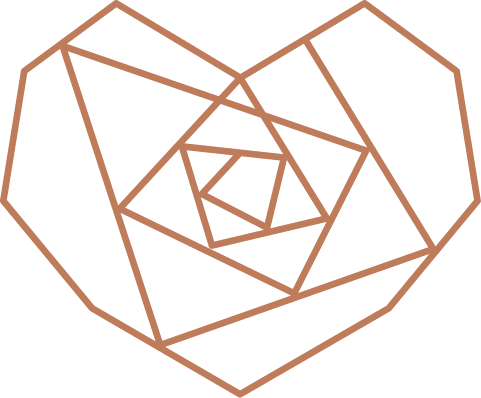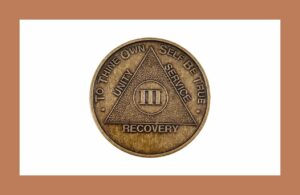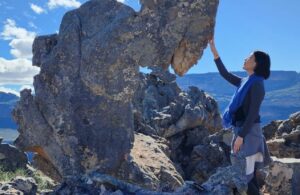More about Cacao
About Celeste

Share this article
Interested in attending a Cacao Ceremony and want to know more about Cacao? We answer your most frequently asked questions about Cacao.
What is Ceremonial Grade Cacao?
Ceremonial Grade Cacao is made from Cacao paste. This Cacao paste comes from only high-quality Cacao beans that have been lightly roasted, shelled and grown down; these beans have been very minimally processed, hence retaining its nutrients. Ceremonial Grade refers to an energetic standard of how the Cacao is handed from seed to drink. It is handed with love, respect, and intent.
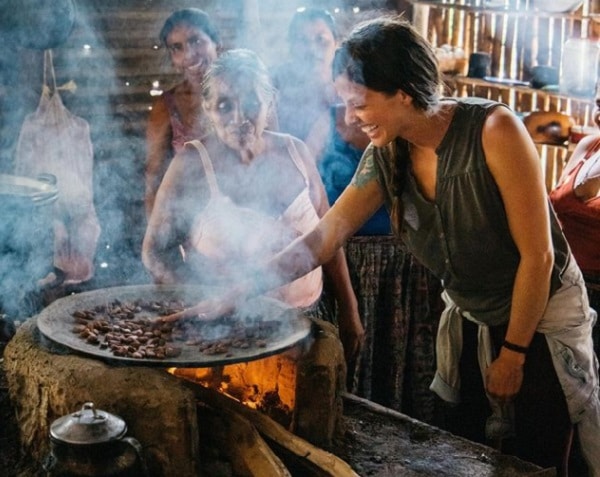
How is Cacao paste different from Cacao powder?
Cacao Paste is more potent than cacao powder because it contains cacao butter which is a carrier fat for the beneficial compounds in cacao, allowing our bodies to absorb more of the nutrients.
Cacao Powder is processed a few steps further. It is defatted to remove the cacao butter from the cacao paste. It tends to be more popular because it is easier to stir into drinks, does not melt in storage and is cheaper. It is usually prepared with milk because it does not taste good with only water. When prepared only with water, you will find Cacao Paste to taste more nourishing.
What is the difference between Cacao Powder and Cocoa Powder?
Both come from the same source, but Cocoa Powder refers to highly processed Cacao. It is roasted at a much higher temperature and usually supplemented with additives like an alkalizing chemical solution or with sugar to cut the bitterness.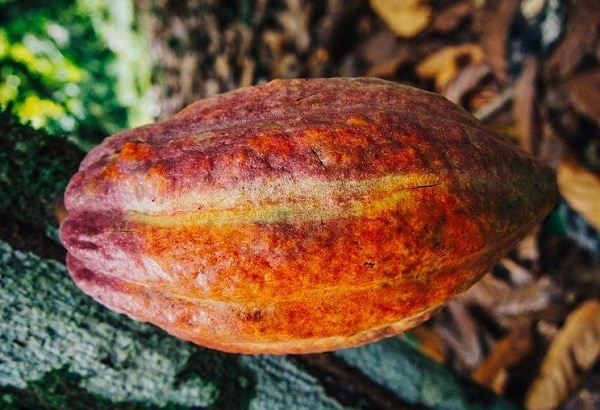
What are the benefits of consuming Ceremonial Grade Cacao?
When consumed unsweetened, it is a superfood, packed with beneficial minerals and neuromodulators that beneficially affect our state of mind. The mild bitterness of a ceremonial cacao drink can also serve to cleanse the liver or release emotions, and the alkaloid content of pure cacao boosts circulation and absorption of nutrients.
Key benefits include:
- Many vital minerals, especially for heart health. Consuming cacao can replenish minerals vital to our body. Magnesium is chronically deficient in the majority of western diets, and cacao is the highest naturally occurring source. Magnesium is used in all key brain functions, especially memory and concentration. It is also beneficial for the function of the heart, acting to relax blood vessel and decrease strain. Besides magnesium, cacao is also the highest naturally occurring source of chromium, and also high in copper, calcium, manganese, zinc, sulfur, iron, and phosphorous.
- Multiple mood elevating compounds.
Cacao contains beneficial neurotransmitters and neuromodulators already present in our brain, most notably including:- Norepinephrine – the joy molecule
- Serotonin – help with wellbeing, and creates resistance to stress.
- Dopamine – feelings of motivation and pleasure.
- Anandamide – the bliss molecule, it moderates pain, and is associated with the “runners high” effect.
- Phenylethylamine – helps with excitement, alertness, attention. Gives the perception of time slowing down.
- Increased energy & vitality. Caffeine is often confused with the primary stimulant molecule in cacao, theobromine. Theobromine is only about one quarter as stimulating as caffeine, and it has a much longer half life in the liver, meaning that it’s effect on the body is softer and longer. Theobromine is a cardiac stimulant, as opposed to caffeine which is a nervous system stimulant.
- High source of antioxidants.
Where can I try or purchase Ceremonial Grade Cacao?
You are invited to join us in an upcoming Cacao Ceremony. We serve Firefly Cacao’s “Boundless Belize” from family organic farms in Southern Belize. The Cacao comes in discs, which makes for easy preparation.
If you are looking to start a regular Cacao ritual and would like to purchase your own Cacao, enjoy a 5% discount with the code THEINSIDEJOBCACAO when you make a purchase here.
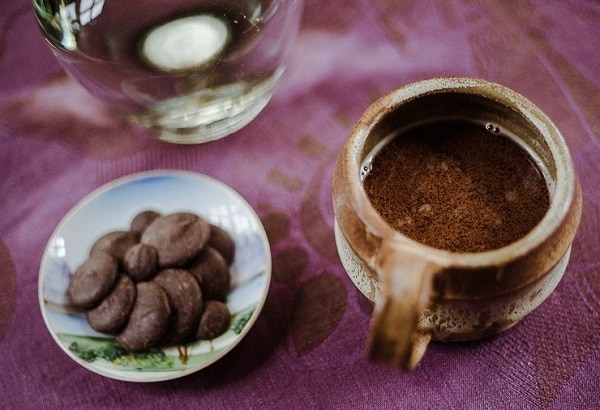
Will I get high from consuming Ceremonial Grade Cacao?
As most participants are enjoying Ceremonial Cacao for the first time, we serve a 20-25g dose. This is a light Ceremonial dose, ideal for those who may be more sensitive and/or trying Cacao for the first time. It is supportive for a gentle lift during Ceremony, but you will not get high. If you have been consuming Cacao regularly and would like to be served a higher Ceremonial dose, just inform us prior to event.
References:
All information has been obtained from Firefly Cacao’s website and images are from Firefly Cacao’s Instagram account
Leaving 12-Steps and Staying Sober
Why I made the difficult decision to leave AA and how I stayed sober.
How I Healed from Anxiety
What I wish I knew about the root cause of anxiety back when I was desperately trying to make sense of it.
My Spontaneous Spiritual Awakening
Never in my wildest imagination! This transformational experience changed the course of my life.
